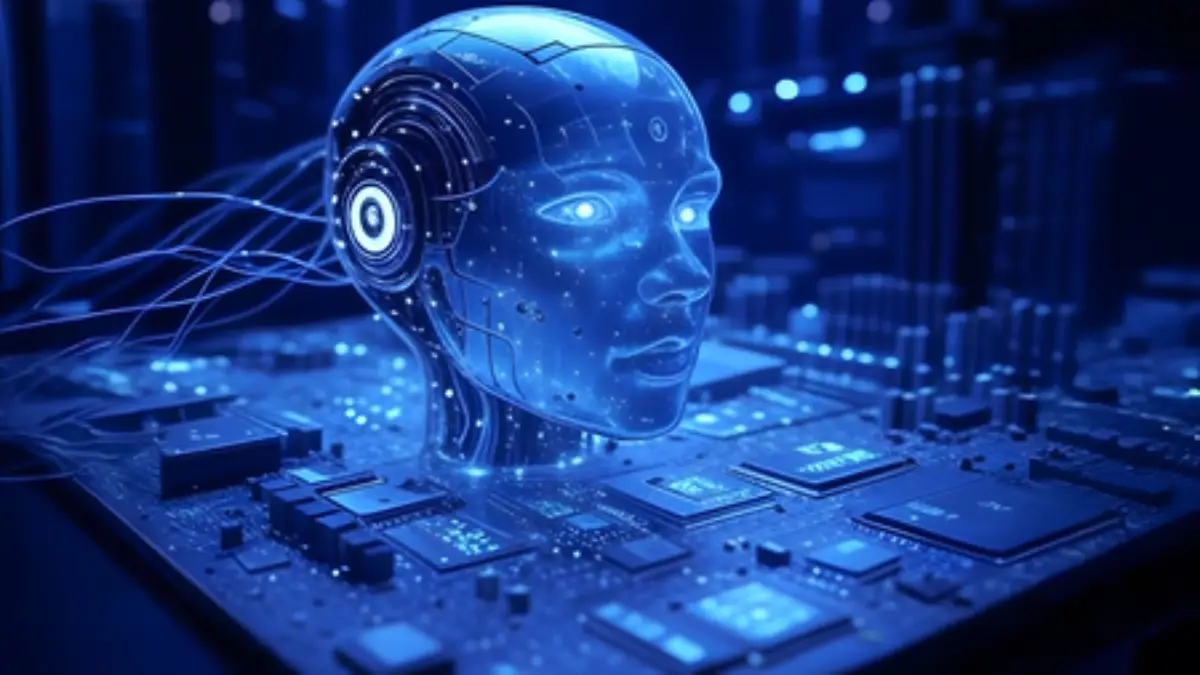AI in Education: Revolutionizing Learning or Just a Passing Trend? A Baltimore Tech Founder's Perspective

Artificial intelligence (AI) is rapidly transforming industries across the globe, and education is no exception. From personalized learning platforms to automated grading systems, AI's potential to reshape how we learn and teach is immense. But is this a genuine revolution, or just another technological hype cycle? We delve into the impact of AI on education, exploring both the opportunities and challenges, with insights from a Baltimore-based tech founder at the forefront of this evolving landscape.
The Current Landscape: AI's Growing Presence in Education
AI is already making inroads into classrooms and educational institutions. Chatbots are providing instant support to students, adaptive learning platforms are tailoring content to individual needs, and AI-powered tools are assisting teachers with administrative tasks, freeing up their time to focus on student engagement. For instance, AI can analyze student performance data to identify areas where they're struggling, offering targeted interventions and customized exercises. This personalized approach promises to improve learning outcomes and cater to diverse learning styles.
Opportunities: Personalized Learning and Enhanced Accessibility
One of the most exciting prospects of AI in education is the potential for truly personalized learning. AI algorithms can analyze a student's strengths, weaknesses, and learning preferences to create a customized learning path. This means students can learn at their own pace, focusing on areas where they need the most support. Beyond personalization, AI can also enhance accessibility for students with disabilities. Text-to-speech tools, real-time translation services, and assistive technology powered by AI can create a more inclusive learning environment for all.
Challenges: Data Privacy, Bias, and the Human Element
However, the integration of AI in education isn't without its challenges. Data privacy is a major concern, as AI systems collect and analyze vast amounts of student data. Robust data security measures and ethical guidelines are essential to protect student privacy and prevent misuse of data. Furthermore, AI algorithms are trained on data, and if that data reflects existing biases, the AI system will perpetuate those biases, potentially leading to unfair or discriminatory outcomes. Addressing bias in AI is crucial to ensure equitable access to quality education for all students.
Perhaps the most significant concern is the potential impact on the human element of education. While AI can automate certain tasks and provide valuable insights, it cannot replace the role of a skilled and caring teacher. Teachers provide mentorship, emotional support, and critical thinking skills that are essential for student development. The goal should be to use AI as a tool to *augment* teachers' capabilities, not to replace them.
A Baltimore Perspective: Innovation and Responsible Implementation
We spoke with [Tech Founder's Name], founder of [Company Name] in Baltimore, a company developing AI-powered educational tools. “[Quote about the future of AI in education, emphasizing responsible implementation and the importance of human teachers],” [he/she] stated. This perspective highlights the importance of a balanced approach – embracing the potential of AI while remaining mindful of its limitations and ethical implications. Baltimore, with its growing tech sector and commitment to education, is poised to be a leader in the responsible development and implementation of AI in learning environments.
The Future of Learning: A Hybrid Approach
Ultimately, the future of education likely lies in a hybrid approach – one that combines the power of AI with the expertise and compassion of human teachers. AI can handle repetitive tasks, personalize learning experiences, and provide data-driven insights, while teachers can focus on fostering critical thinking, creativity, and social-emotional development. By embracing this collaborative model, we can harness the transformative potential of AI to create a more engaging, equitable, and effective education system for all.






